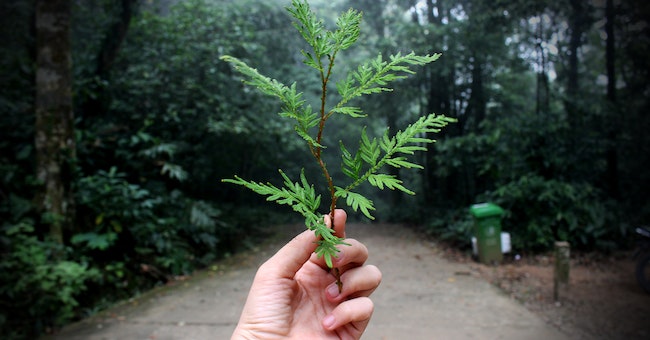The Importance of Ecology: Nurturing Our Connection to the Natural World

Introduction
In an ever-changing world, the intricate relationships between living organisms and their environment have become a subject of paramount importance. Ecology, a field that delves into these connections, offers insights into the delicate balance that sustains life on our planet. As human activities continue to reshape the world, understanding ecology becomes not only a matter of scientific inquiry but a crucial aspect of responsible stewardship. In this article, we'll explore the significance of ecology, its fundamental concepts, and the ways in which it impacts our lives and the world around us.
Defining Ecology: A Holistic Science
Ecology is more than just a scientific discipline; it's a way of viewing the world as a complex web of interactions. Derived from the Greek words "oikos" (meaning "house" or "environment") and "logos" (meaning "study" or "knowledge"), ecology is the study of how organisms interact with each other and their environment. This encompasses the relationships between individuals, populations, communities, and ecosystems, along with the flows of energy and matter that sustain them.
Ecology's Fundamental Concepts
Biodiversity: Biodiversity refers to the variety of life forms on Earth, from microorganisms to plants, animals, and humans. A diverse array of species is essential for ecosystem resilience, as different organisms play unique roles in maintaining ecosystem functions.
Ecosystems: An ecosystem consists of all the living organisms in a particular area along with their physical environment. It encompasses not only the flora and fauna but also the interactions between them and their surroundings.
Energy Flow: The sun is the primary source of energy for most ecosystems. Energy flows through ecosystems as it is transferred from producers (plants) to consumers (animals) through various trophic levels.
Nutrient Cycling: Nutrients like carbon, nitrogen, and phosphorus cycle through ecosystems, being taken up by organisms and returned to the environment through processes like decomposition and nitrogen fixation.
Interactions: Organisms interact with each other in various ways, including predation, competition, mutualism, and symbiosis. These interactions shape the structure and dynamics of ecosystems.
The Ecological Crisis and Its Impact
The past few decades have witnessed an escalating ecological crisis fueled by human activities such as deforestation, pollution, habitat destruction, and climate change. These actions have caused widespread habitat loss, species extinction, and disruptions in ecosystem functions. The consequences of this crisis are not isolated; they ripple through ecosystems and have far-reaching implications for human well-being.
Ecosystem Services: The Benefits of Ecology
Ecology underscores the vital role of ecosystems in providing a wide range of services essential for human survival and prosperity. These ecosystem services include:
Clean Air and Water: Ecosystems, particularly forests and wetlands, play a crucial role in purifying air and water. Trees, for example, absorb carbon dioxide and release oxygen while also filtering pollutants from the air.
Pollination: Many crops rely on pollinators such as bees and butterflies for reproduction. Ecosystems with diverse populations of pollinators ensure food security by supporting agricultural productivity.
Climate Regulation: Healthy ecosystems, like forests and oceans, act as carbon sinks, absorbing and storing carbon dioxide. This helps regulate the Earth's climate and mitigate the impacts of climate change.
Medicinal Resources: Many plants and organisms found in diverse ecosystems are sources of potential pharmaceuticals. Studying these ecosystems can lead to the discovery of new drugs and treatments.
Recreation and Aesthetics: Natural ecosystems provide spaces for recreation, relaxation, and cultural enrichment. They contribute to the overall well-being and quality of life of individuals and communities.
Ecology's Role in Sustainable Practices
As the world grapples with environmental challenges, ecology offers solutions rooted in sustainable practices. Concepts like sustainable agriculture, conservation biology, and ecosystem-based management provide frameworks for minimizing negative impacts on the environment while promoting human well-being.
Educating for a Sustainable Future
Education in ecology is crucial for fostering a generation of environmentally conscious individuals. Schools, universities, and institutions play a pivotal role in teaching students about the intricacies of ecological systems, the importance of biodiversity, and the consequences of human actions. Such education empowers individuals to make informed decisions that contribute to a more sustainable and harmonious world.
The Way Forward: A Call to Action
The study of ecology serves as a reminder that our fates are intertwined with the health of the planet. The choices we make today have lasting effects on the ecosystems that sustain us. To address the ecological crisis, individuals, communities, governments, and industries must come together to prioritize conservation, restoration, and sustainable practices. By embracing ecological principles and working collectively, we can pave the way for a future where humanity and nature coexist in harmony.
Recommended Online Resources for Ecology
Welcome to the course "Ecology and Environment," a transformative journey into the realm of ecology, environment, and sustainability. Designed for BTech students, this course introduces a dynamic fusion of ecological understanding and engineering prowess. Through engaging lectures, you'll delve into the pivotal intersection of engineering, management, and ecological sensitivity, enriching your ability to infuse sustainability into your product, process, and system designs. This course empowers learners of all backgrounds, requiring no prerequisites.
Course highlights:
Introduction to Ecology and Sustainability: Delve into the world of ecology, environment, and sustainability.
Engineering Integration: Learn how to infuse sustainability into product, process, and system designs.
Diverse Learner Engagement: Open to BTech students and interested learners from various backgrounds.
Real-world Applications: Apply knowledge to design environmentally friendly projects.
Career Exploration: Explore career paths like Environmental Scientist, Engineer, Policy Analyst, and Educator.
Ecology: Ecosystem Dynamics and Conservation
Understand ecosystem dynamics through a systems thinking lens. Explore Gorongosa National Park's case study to learn how scientists study and manage ecosystems. Analyze conservation questions involving ecosystem recovery and human impact. Apply knowledge to local environments, pursue careers in conservation biology, ecological restoration, policy analysis, or environmental education. Choose education paths like a Bachelor of Science in Ecology, Master of Science in Conservation Biology, Doctor of Philosophy in Ecology, or Master of Science in Environmental Science to drive meaningful change.
Course highlights:
Ecology Foundations: Introduction to ecology and ecosystem dynamics from a systems thinking perspective.
Real-World Case Study: Dive into Gorongosa National Park's ecosystem challenges and solutions.
Scientific Understanding: Explore how scientists study ecosystems and ecological interactions.
Management Insights: Investigate factors influencing effective ecosystem management strategies.
Applied Conservation: Analyze real-world scenarios, ecosystem recovery, and human involvement.
Ecology introduction | Ecology | Khan Academy
Delve into the study of interactions between organisms and their environment. Discover how these interactions shape the distribution and abundance of different organisms. From understanding polar bear habitats to unraveling mildew growth patterns, gain insights into the intricate world of ecology. Khan Academy's platform provides personalized learning, practice exercises, and videos, enabling learners to grasp concepts at their own pace. Embark on a journey of ecological exploration, enhanced by partnerships with prestigious institutions for specialized content across subjects such as math, science, history, and more.
Course highlights:
Interactive Ecology Learning: Understand organism-environment interactions and their impact.
Polar Bear to Mildew: Explore diverse ecological phenomena, from polar bears' habitats to mildew growth.
Adaptive Learning Platform: Khan Academy's tailored dashboard supports personalized studying.
Broad Subject Coverage: Khan Academy addresses math, science, history, programming, and more.
Prestigious Partnerships: Collaborations with NASA, MoMA, MIT, and others for specialized content.
Conclusion
In conclusion, ecology is far more than a scientific field; it's a lens through which we can understand and appreciate the intricate web of life that envelopes our planet. From the tiniest microorganisms to the grandest ecosystems, every aspect of nature is interconnected. As we navigate the challenges of a rapidly changing world, ecology offers us a guiding light—a roadmap toward a future where we not only survive but thrive in partnership with the Earth. It's a call to action for us all to become stewards of our environment, nurturing the delicate balance that sustains life for generations to come.





